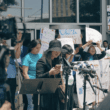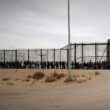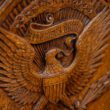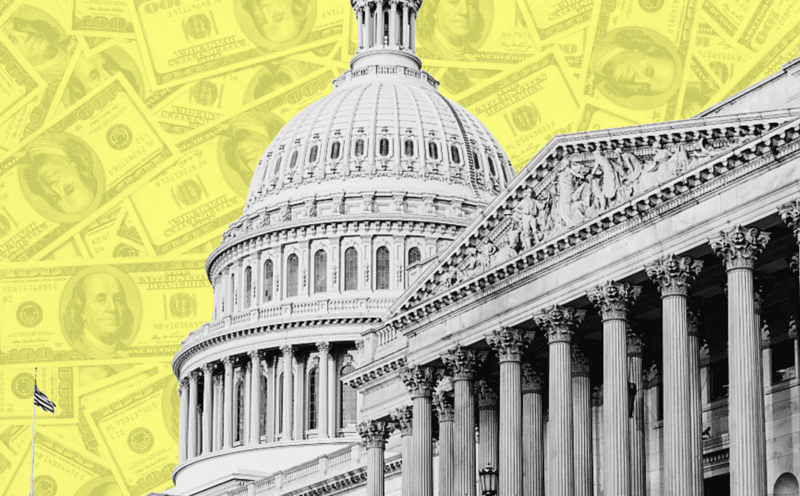Good afternoon and welcome to a special edition of The Yappie's Asian American politics and activism briefing! We amplified resources on how to support and stand in solidarity with the black community last week, and an updated list is available here. Support our work by making a donation and let us know what you think by replying to this email. Send tips, ideas, events, and opportunities to [email protected].
The Big Story
DEEP DIVE—SLAMMED BY CRISES, AAPIS FACE A PROLONGED ECONOMIC NIGHTMARE: Widespread closures and layoffs that disproportionately impacted workers of color pushed the Asian unemployment rate to a staggering 15% in May, the U.S. Department of Labor reported on Friday—the highest level ever recorded. The combination of fresh jobs data and looting across the disease-ravaged nation paints an increasingly dire picture for America’s nearly two million Asian American Pacific Islander (AAPI)-owned businesses—and suggests the worst is yet to come. Here’s what you need to know…
- Alarm bells: May’s jobs report showed unemployment declining across the board except for Asian and Black workers, who are usually the last to come back from a downturn. Claims are still skyrocketing in states with large Asian populations—exacerbated by what AAPI advocates describe as ongoing difficulties in accessing government aid. Roughly 1 in 4 Asian workers in California and Minnesota have sought relief, state labor officials say, while more than 195,000 have filed for unemployment in New York since April.
- Missing details: The state and national totals still do not reflect the full extent of the pandemic’s sweeping economic toll and exclude undocumented Asian Americans, who are ineligible to apply for unemployment benefits, CNN’s Shannon Liao reports. Data on Native Hawaiians and Pacific Islanders—who are more likely to be unemployed and to experience poverty due to a variety of socioeconomic factors—remains hard to find.
- A perfect storm: Asian-owned stores and restaurants saw business dry up in late February and were left reeling by emergency lockdowns. Now looting in Minneapolis, New York City, San Francisco, and beyond have dealt yet another blow to small businesses that had been weighing reopening—and a new wave of coronavirus could cripple them further.
- The view in Washington: The Trump administration has maintained a rosy economic outlook for AAPI businesses, despite signals that the pain may be long-term. In a May 13 webinar hosted by the White House Initiative on AAPIs, U.S. Deputy Labor Secretary Patrick Pizzella said he had “reason to be hopeful” and that “our economy can rebound quickly,” while Commerce Secretary Wilbur Ross told attendees at the National AAPI Business Summit that the federal government was “doing everything it can” to ensure the viability of AAPI businesses.
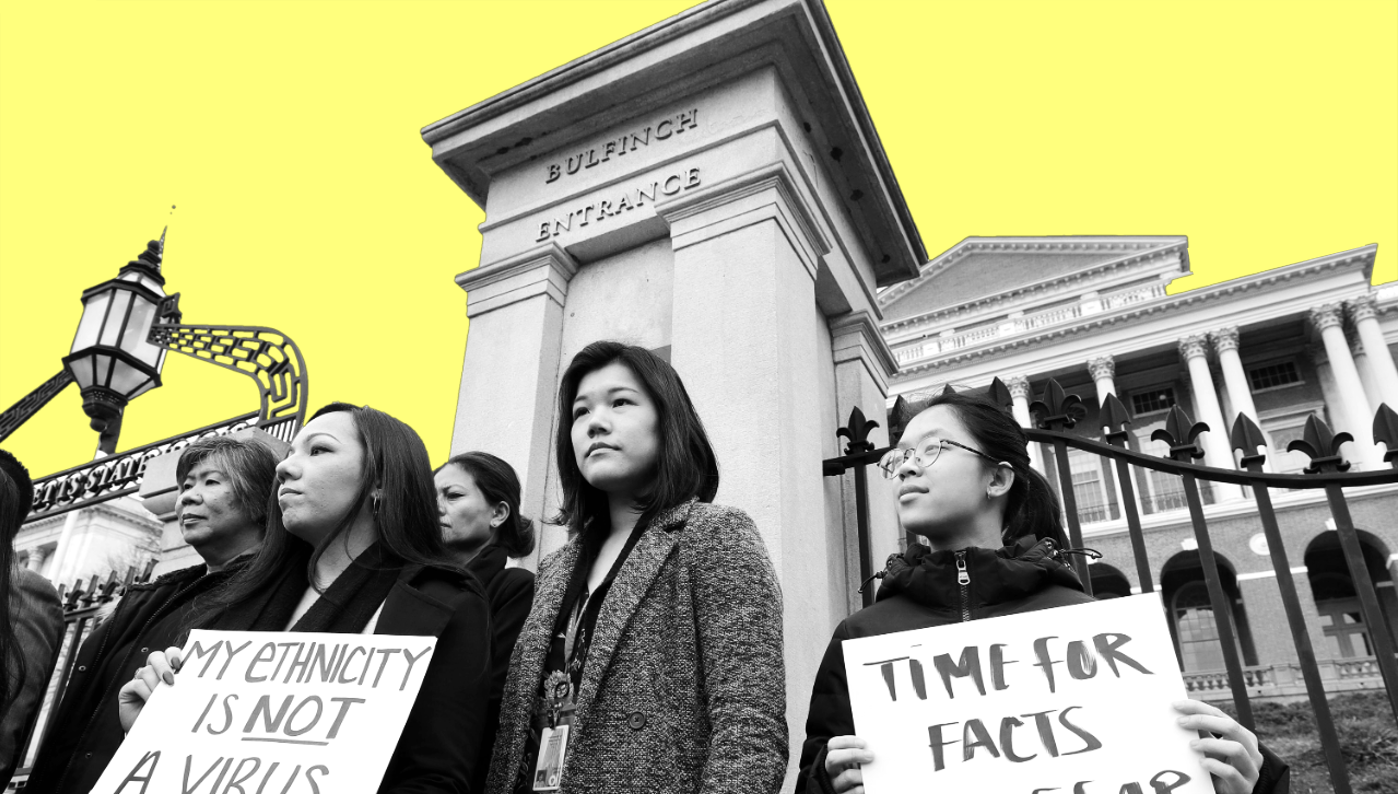

On The Agenda
SCOOP—COVID-19 HATE REPORTS SURPASS 2,000 MARK: AAPI advocacy groups and researchers have received over 2,000 individual reports of coronavirus-related harassment and discrimination since late February, according to a tally provided to The Yappie by Marita Etcubañez, the director of strategic initiatives at Asian Americans Advancing Justice | AAJC in Washington.
- The details: A trio of websites maintained by AAJC, OCA-Asian Pacific American Advocates, the Asian Pacific Policy and Planning Council (A3PCON), and Chinese for Affirmative Action (CAA) received at least 2,120 reports of hate incidents ranging from verbal harassment to vandalism to physical assaults. The news site NextShark, which created its own form, collected roughly 100 additional reports, Editor-in-Chief Waylae Gregoire told The Yappie on Thursday. A majority of the incidents were documented as panic over the coronavirus exploded in the U.S., with CAA and A3PCON’s Stop AAPI Hate tracker collecting 1,700 reports in a six-week period beginning on March 19.
- Context: The numbers provided by the groups capture only a fraction of the COVID-19 related discrimination playing out across the country, since hate incidents are often underreported by Asian Americans. An April survey conducted by Ipsos for the Center for Public Integrity found more than 30% of Americans have witnessed someone blaming Asian people for the coronavirus pandemic; 60% of Asian Americans “told Ipsos they’ve seen the same behavior.”
UPDATE—THAO HIT WITH CHARGES IN FLOYD KILLING: Minnesota Attorney General Keith Ellison has charged three former police officers at the scene of George Floyd’s death—including Tou Thao—with aiding and abetting second-degree murder, the Star-Tribune’s Chao Xiong reports.
- The details: Thao, the Hmong American police officer who stood by as his white colleague Derek Chauvin pressed down on George Floyd’s neck, faces the charges just days after Minnesota Gov. Tom Walz asked Ellison to take over the prosecution. According to The Daily Beast, Thao received past complaints about use-of-force incidents at the Minneapolis Police Department before his firing last month—but no disciplinary action was ever taken.
- Seeking solidarity: Images of Thao during the May 25 incident sparked an outcry from AAPI activists and rocked Minnesota’s tight-knight Hmong community, which reported an uptick in harassment and threats of violence. “In this painful moment, we ask our Asian communities to choose our shared liberation [and commit to] fight for Black lives the way we would our own,” the Minnesota-based Coalition of Asian American Leaders (CAAL) said in an open letter on Friday. Youa Vang, whose son was killed by Minneapolis police in 2006, urged Hmongs “to speak out and to support those voices that have been taken away from us.”
- The big picture: “Thao’s presence at the grisly scene has sparked significant discourse on anti-Blackness within the Asian community” and “rekindled a discussion on the role Asian Americans play in the nation’s deep racial divide,” Grist reporter Rachel Ramirez writes. In one particularly ugly episode, the New York University chapter of the Asian-interest fraternity Lambda Phi Epsilon was suspended last week after racist GroupMe messages advocating for police brutality were leaked on Twitter.
- The political response: More than a dozen national AAPI organizations—including members of the National Council of Asian Pacific Americans (NCAPA) and the Asian American Legal Defense and Education Fund (AALDEF)—signed onto a letter on Monday pressing Congress to take “swift and decisive legislative action” around a range of policing issues.
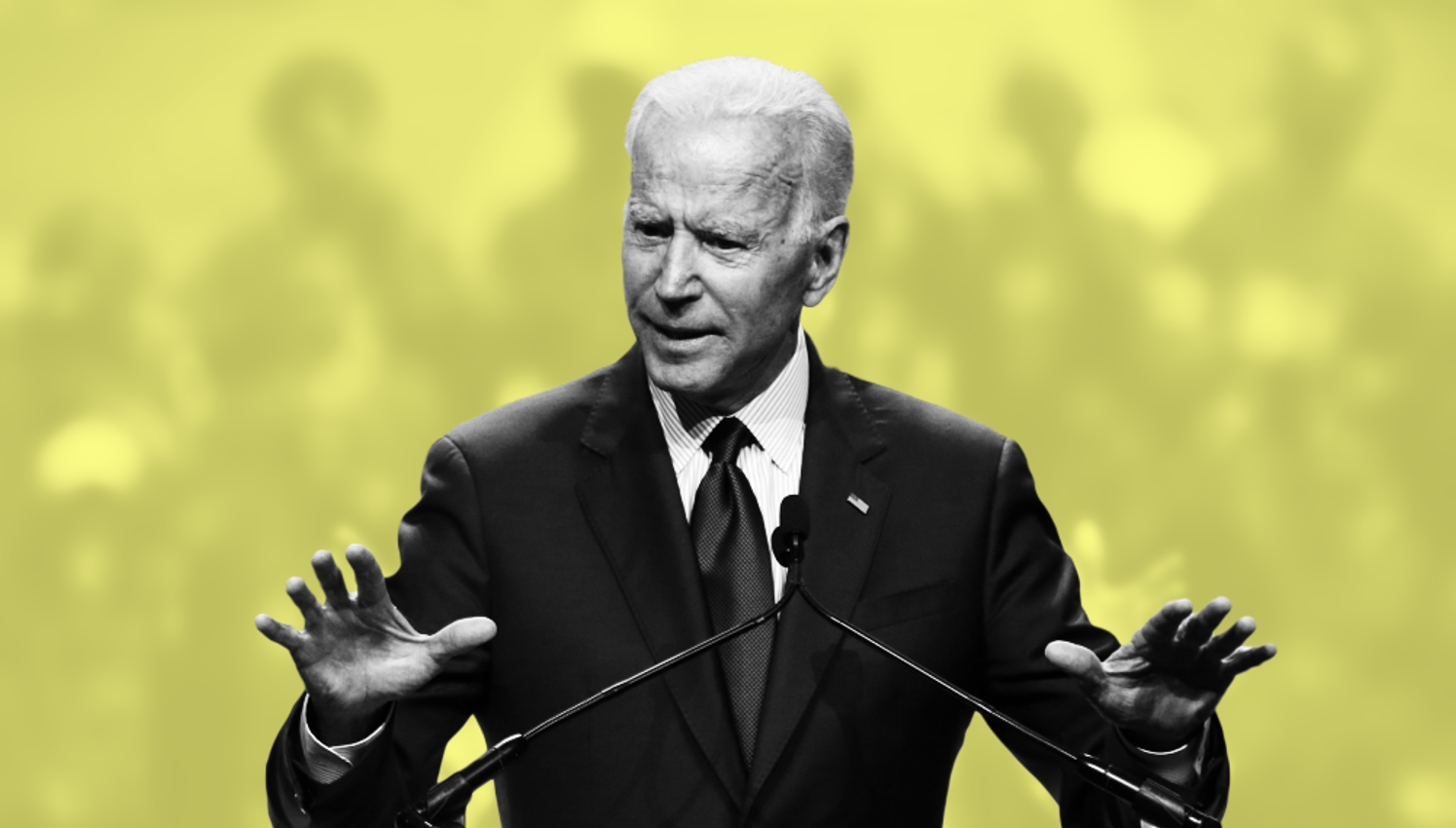

2020 Watch
UPDATE—AAPI GROUPS COALESCE AROUND BIDEN AS NOMINATION NEARS: The Asian American Action Fund (AAAF) and ASPIRE PAC, the political arm of AAPI Members of Congress, are throwing their support behind presumptive Democratic nominee Joe Biden, NBC Asian America’s Kimmy Yam reports. Biden also picked up the endorsements of several Obama-era AAPI officials last week, including former Deputy Secretary of Labor Chris Lu and former WHIAAPI director Kiran Ahuja. Read more.
- Notable: Biden “has been a strong ally of AAPIs throughout his service in the Senate and Obama administration, and he understands that diversity makes our country great,” ASPIRE PAC chair Rep. Grace Meng (D-New York) said in a statement. “As president, he will stand with AAPIs and ensure that Americans from all communities are treated with dignity and respect.”
- Meanwhile… Biden and Sen. Tammy Duckworth (D-Illinois) slammed President Donald Trump’s “encouragement of racism against Asian Americans” in a joint op-ed published by NBC News. The former vice president previously accused Trump of “fanning the flames” of “hate, fear and xenophobia” in remarks to the AAPI Victory Fund, but the campaign also came under fire in April for releasing an ad that advocacy groups said “reinforces Trump’s racist … efforts to identify the disease with China and [the] Chinese people.”
ICYMI—TRUMP MAKES NEW PLAY FOR AAPI SUPPORT: President Trump’s re-election campaign formally kicked off its “Asian Pacific Americans for Trump” coalition with a virtual event last Friday, The Hill reports. Read more.
- Details: The broadcast, which featured remarks from U.S. Secretary of Transportation Elaine Chao, Utah Attorney General Sean Reyes (R), and Arizona State Treasurer Kimberly Yee (R), was heavily focused on family, small business relief, and countering China. The coalition aims to mobilize and empower AAPIs “by sharing the success that Asian Pacific Americans have found under the President’s leadership,” the campaign said in a statement obtained by The Yappie.
- The new group appears to be separate from the Republican National Committee’s APA Community Engagement and Trump Victory Leadership Initiative (TVLI), which shifted to hosting virtual trainings, in-language workshops, and town halls during the early weeks of the coronavirus pandemic. The campaign’s first national APA mobilization call in April featuring senior advisor John Pence drew roughly 200 participants, Trump Victory Director of APA Engagement Esther Lu tells The Yappie.
THE LONG READ—TRUMP’S PHOTO-OP, VIRUS COMMENTS PUT GOP CANDIDATES ON DEFENSE: President Trump and House Minority Leader Kevin McCarthy’s (R-California) use of the term “Chinese virus” has put several Republican AAPI House candidates in a difficult spot—to the delight of Democrats.
- The Democratic Congressional Campaign Committee (DCCC), the entity charged with helping elect Democrats to the House, has been monitoring Michelle Steel (CA-48) and Young Kim (CA-39) and noting their lack of pushback against the phrase. Kim initially declined to weigh in on the McCarthy controversy in March before telling the National Journal: “Let’s call [the coronavirus] by the scientific name.” Steele told reporters: “It started from China, so that is what [Trump] is calling it … They asked me because I’m an Asian. That’s discrimination here, to start with.”
- Both candidates’ silence drew condemnation from Irvine City Councilmember Farrah Khan, who tweeted that “they have turned their back on us … I urge all our leaders to speak out against such vitriol and support the communities we serve.” Steel and Kim are part of the National Republican Congressional Committee’s “Young Guns” program and are widely viewed as essential to the GOP’s hopes of a comeback in California’s Orange County.
- It’s not just House candidates that are stuck: In a 57-page memo obtained by POLITICO, the National Republican Senatorial Committee advised campaigns to respond to accusations that the GOP’s China messaging is fueling attacks against Chinese Americans by saying: “No one is blaming Chinese Americans. This is the fault of the Chinese Communist Party for covering up the virus and lying about its danger.”
- The DCCC is also taking aim at GOP members following President Trump’s staged photo-op outside St. John’s Episcopal Church in Washington, D.C. and the termination of the U.S.’s preferential treatment of Hong Kong.
- “Last year, House Republicans tried to stop Hong Kong police from attacking peaceful protestors. Months later, they’re cheering the decision to gas and shoot rubber bullets at Americans peacefully protesting police violence against African Americans,” DCCC spokesperson Robyn Patterson said in a statement. “House Republicans’ continued embrace of a racist political playbook, along with their disregard for the First Amendment and American citizens’ constitutional rights will not go unnoticed by voters.”
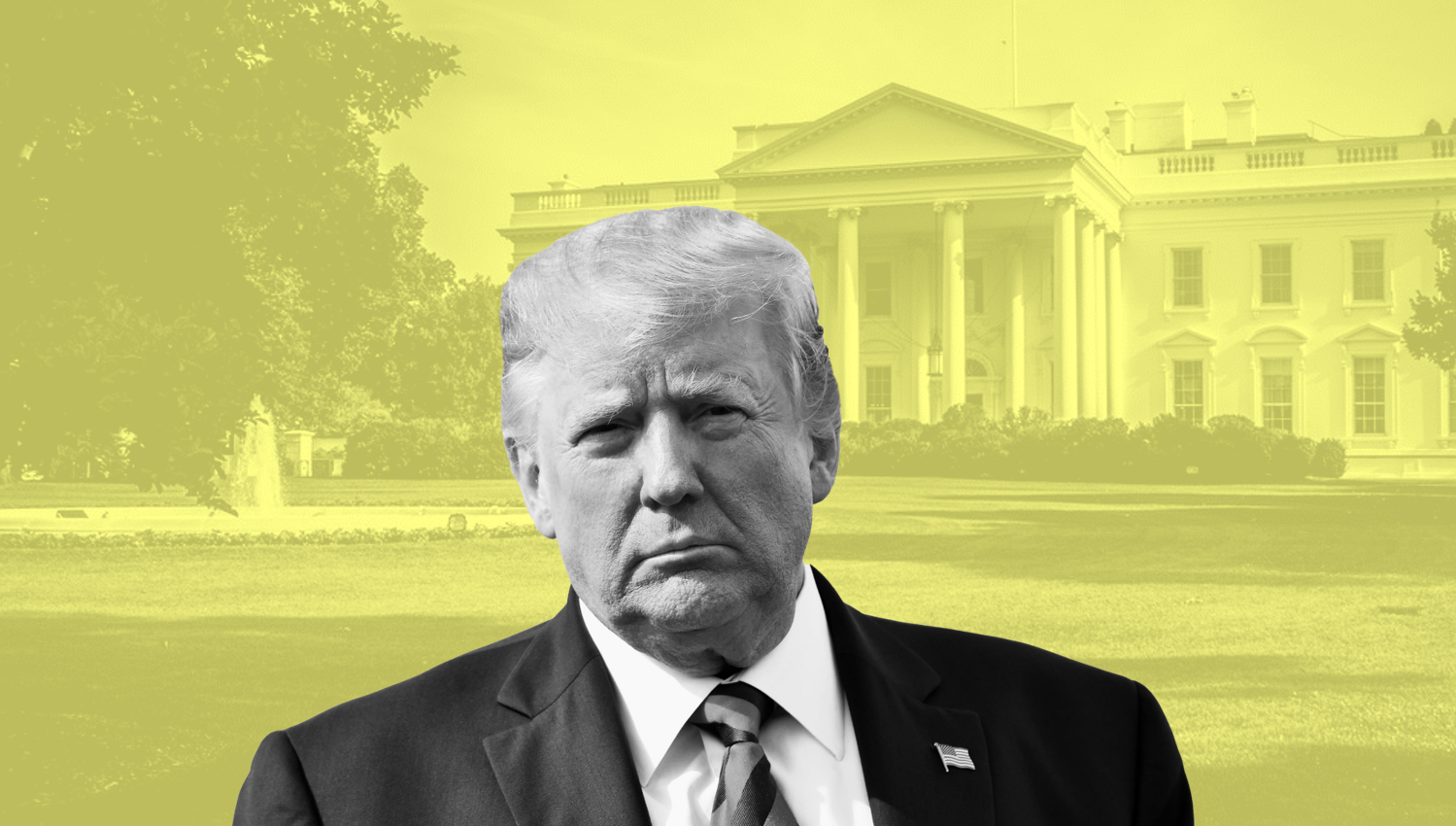

The Trump Era
ACTIVISTS PROD TRUMP TO ADDRESS ANTI-ASIAN VIOLENCE: The U.S. Commission on Civil Rights, the federal agency charged with advising the president and Congress on civil rights enforcement, has agreed to issue guidance to federal agencies on preventing and addressing anti-Asian racism and xenophobia, NBC News Asian America’s Kimmy Yam writes. Read more.
- Why this matters: The USCCR guidance appears to be the first federal move related to combating discrimination and attacks since the coronavirus pandemic began, and comes on the heels of a Center for Public Integrity story that found the Trump administration’s efforts to prevent backlash against Asian Americans “[pale] in comparison to actions taken during the SARS outbreak and after the 9/11 terrorist attacks.”
- Context: AAPI groups have been pressing President Trump to step up after the FBI warned of a potential surge in hate crimes in a March intelligence report, which cited the stabbing of a Hmong American family in Midland, Texas. More than 180 civil rights organizations urged the White House to establish a task force “to investigate and protect the civil rights of AAPIs” and more than a dozen Democratic senators have sent letters to the U.S. Department of Justice and the Centers for Disease Control and Prevention.
- What the Trump administration has said: “The Justice Department will prosecute hate crimes and violations of anti-discrimination laws against Asian Americans, Asians, and others to the fullest extent of the law,” Assistant Attorney General of the DOJ’s Civil Rights Division Eric Dreiband wrote in a Washington Examiner op-ed. “Attorney General William Barr and I have instructed department prosecutors that we will not tolerate hate-motivated acts of violence.”
UPDATE—AAPI GROUPS BLAST TRUMP, GOP SENATORS OVER CHINA MEASURES: With U.S.-China tensions soaring, AAPI groups are gearing up for yet another fight over the future of Chinese graduate students.
- What’s happening: A proclamation blocking the entry of Chinese graduate students and researchers linked to entities that “implement or support” China’s “military-civil fusion strategy” was signed by President Trump last month and went into effect on June 1. Meanwhile, U.S. Senators Tom Cotton (R-Arkansas) and Marsha Blackburn (R-Tennessee) introduced the Secure Campus Act, which essentially codifies the proclamation into law and bars most Chinese nationals seeking to conduct graduate or postgraduate STEM research in the U.S. from receiving visas.
- The reaction: “President Trump is pushing an unfounded conspiracy theory that all Chinese students are agents of China’s government, and openly discriminating against Chinese students,” OCA-Asian Pacific American Advocates Executive Director Rita Pin Ahrens said, while the D.C.-based group Asian Americans Advancing Justice | AAJC described the legislation as “nothing more than an attempt at a new Chinese Exclusion Act.”





